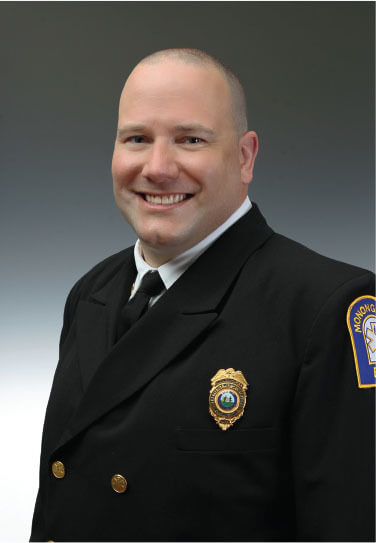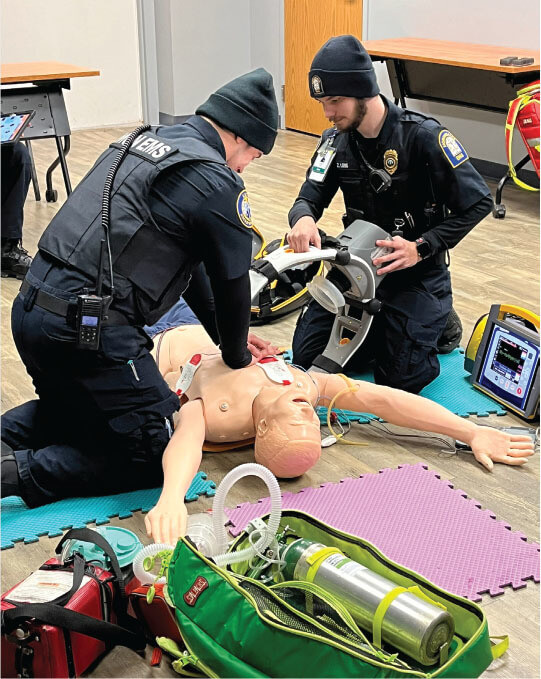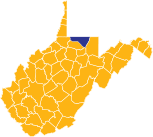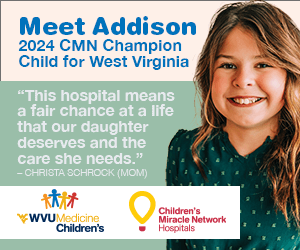Forest WeyEn on coming home to leadership and exploration in West Virginia.
written by DONNA HERTO

In July 2019, the Mon Health System and WVU Hospitals agreed to combine the assets of the Mon Health EMS and the WVU Healthteam to establish a single agency to serve residents of Monongalia County and the surrounding area. Forest Weyen was tapped to lead the community-based partnership and nonprofit organization as the executive director of Monongalia Emergency Medical Services in Morgantown.
Growing up and living in the Mountain State before leaving for a role overseas, Weyen had never lost touch with the friends who made West Virginia feel like home. So although he was living in Vermont at the time the opportunity came about, he decided—after some discussion with his spouse—to take the “country roads back to Morgantown and begin the transformation of Mon EMS.”
Share a bit about your background and growing up in West Virginia.
Forest Weyen: I was born and raised in Greenbrier County in White Sulphur Springs, a lovely small town and a very tight community. In the ’80s and ’90s, we had some amazing circles of family and friends that did everything from local sports teams and scouts to family vacations together. I was raised with a tenacious work ethic and respect for all folks. Our parents’ expectations were to treat everyone from the lowest paid employee to the CEO with generosity and respect.

Why did you leave West Virginia, and to where did you relocate?
FW: After graduate school and a few years working, I was afforded an opportunity to assist in building an EMS system in Doha, Qatar. That was an amazing time with some amazing people. Since returning to the U.S., I have lived and worked in Pittsburgh, Kentucky, and Vermont.
How long were you away, and what drew you back to the state?
FW: I lived in West Virginia until 2006. While I completed undergrad and graduate school in West Virginia, I worked as a paramedic. I worked for Mon Health EMS as a paramedic and logistics officer, and, before I left, as an operations chief.
As my travels took me around the country and the world, I obviously had friends and family in West Virginia and especially Morgantown. I would occasionally come back for football and basketball games or to visit friends. I would always ask those in the area how Mon EMS was doing. When I was approached about coming back to take over the merger, I knew it was going to be a large task—but potentially so rewarding.
What did you notice had changed about the state?
FW: The West Virginia I grew up in talked about issues and had a healthy debate, and at the end of the day, we were all pushing to move the state forward. When the conversation was over, we were still friends and colleagues. We need more of that in the world.
When you returned, what familiarities did you find?
FW: The people of this state are amazing. There is such pride in West Virginia. People love this state. The people here are smart, hard-working, and resilient. They can get through some really tough stuff.
How do you experience West Virginia differently since having left and returned?

FW: The one thing that my wife and I have tried to do since coming back to West Virginia is to explore it. As I traveled the world, I would go into every museum, park, or attraction I could to explore and learn. I realized that there are things in and around my community that I have never been to. This year alone we have rafted the Gauley, mountain biked at Snowshoe, and visited multiple state parks. You need to take that time and explore the places where you live.
READ MORE ARTICLES FROM SPRING 2024












Leave a Reply